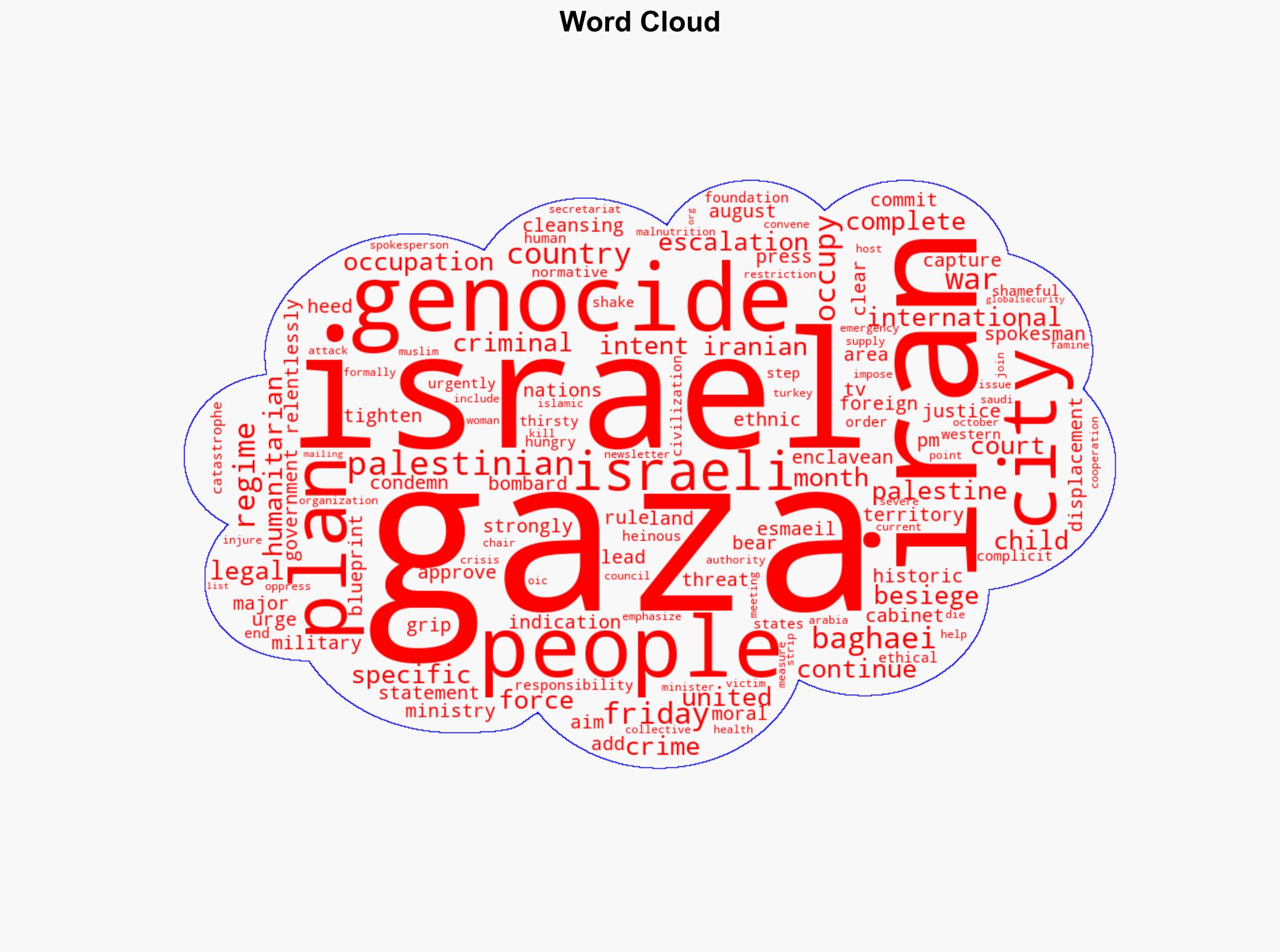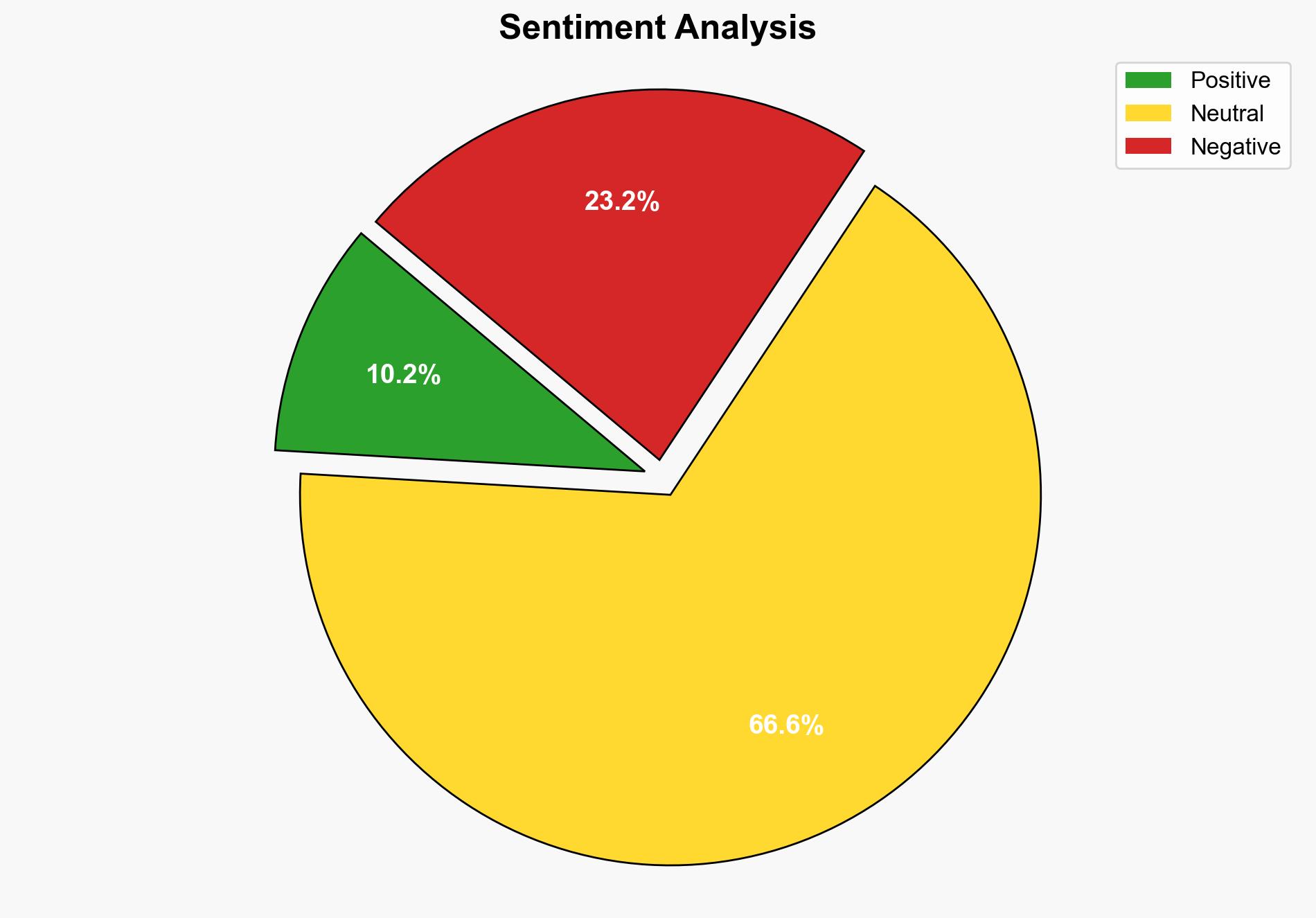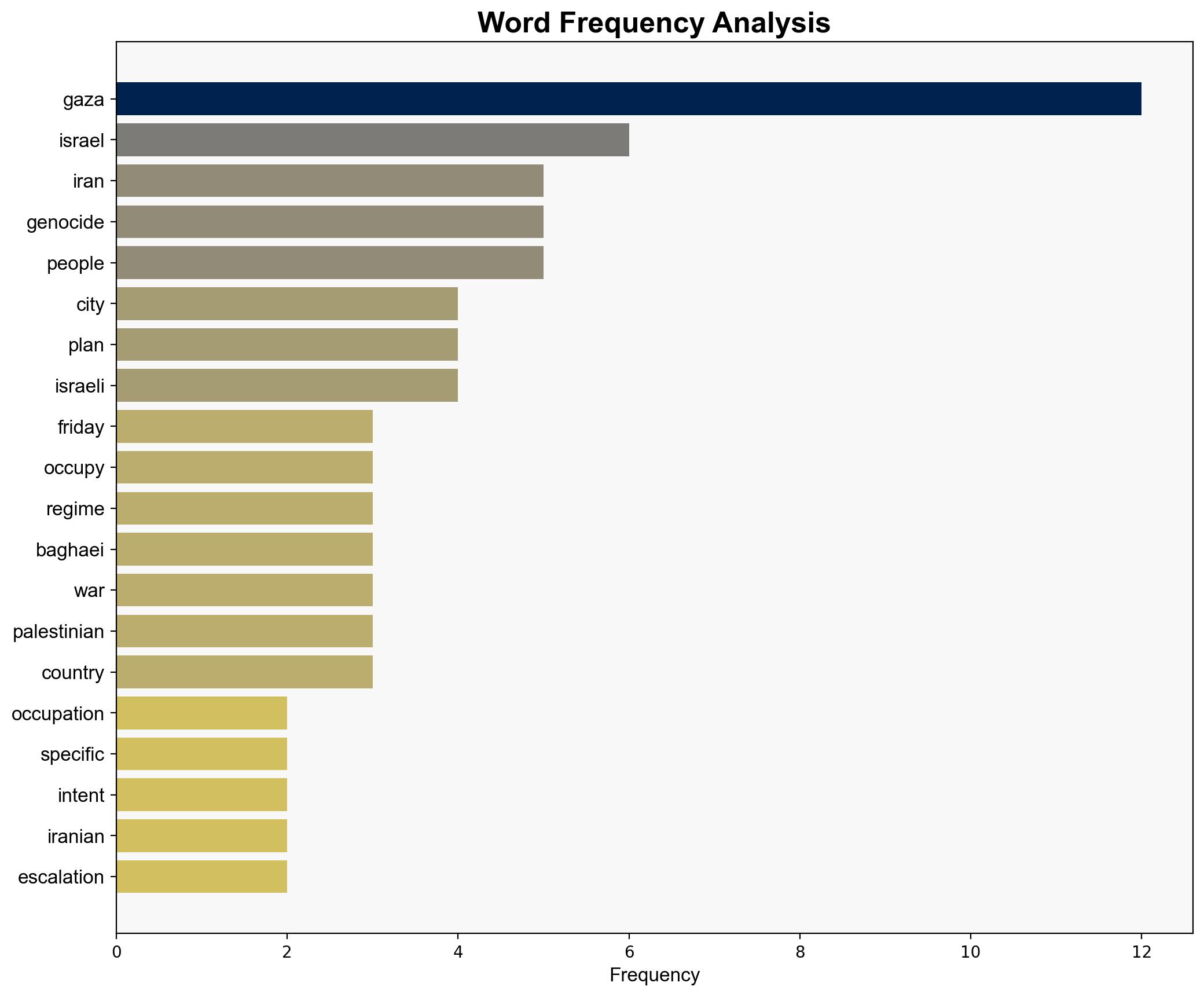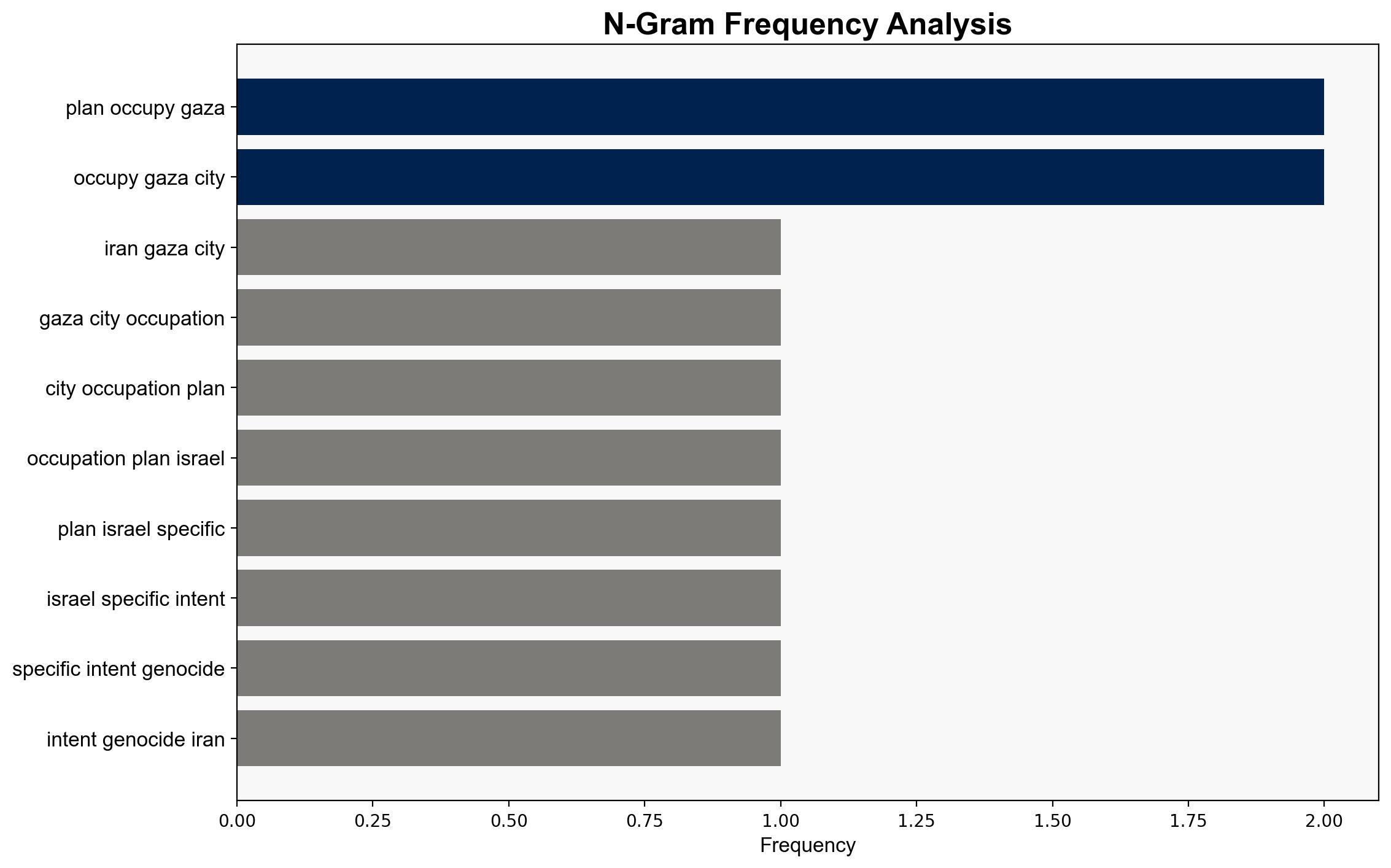Iran Gaza City occupation plan shows Israel’s ‘specific intent’ for genocide – Globalsecurity.org
Published on: 2025-08-09
Intelligence Report: Iran Gaza City occupation plan shows Israel’s ‘specific intent’ for genocide – Globalsecurity.org
1. BLUF (Bottom Line Up Front)
The most supported hypothesis suggests that Iran’s claims of Israel’s intent for genocide in Gaza are part of a strategic narrative to galvanize international and regional opposition against Israel. Confidence in this assessment is moderate, given the complexity of the geopolitical landscape and the potential for information manipulation. It is recommended to monitor regional diplomatic activities and prepare for potential escalations in rhetoric and military posturing.
2. Competing Hypotheses
1. **Hypothesis A**: Iran’s statements are accurate, and Israel’s military actions in Gaza are aimed at ethnic cleansing and genocide.
– **Supporting Evidence**: Iran’s condemnation aligns with the narrative of humanitarian organizations highlighting the severe humanitarian impact in Gaza.
– **Contradictory Evidence**: Israel’s stated military objectives focus on security and counter-terrorism, not genocide.
2. **Hypothesis B**: Iran’s statements are part of a broader strategic narrative to delegitimize Israel and rally regional support against it.
– **Supporting Evidence**: Iran’s call for international and regional action suggests a strategic intent to isolate Israel diplomatically.
– **Contradictory Evidence**: Lack of direct evidence linking Israel’s actions to an explicit intent for genocide.
3. Key Assumptions and Red Flags
– **Assumptions**:
– Hypothesis A assumes Israel’s military plans inherently aim for ethnic cleansing.
– Hypothesis B assumes Iran’s narrative is primarily strategic rather than based on genuine humanitarian concerns.
– **Red Flags**:
– Potential cognitive bias in interpreting military actions as genocidal without clear evidence.
– Possible deception in the use of charged language to influence international opinion.
– Inconsistent data on the actual military objectives and humanitarian impacts.
4. Implications and Strategic Risks
– **Geopolitical Risks**: Increased tensions between Israel and regional powers, potentially leading to broader conflict.
– **Economic Risks**: Disruption in regional trade and investment due to heightened instability.
– **Cyber Risks**: Potential for increased cyber-attacks as part of asymmetric warfare tactics.
– **Psychological Risks**: Heightened fear and mistrust among civilian populations, exacerbating regional divisions.
5. Recommendations and Outlook
- Enhance diplomatic engagement with regional powers to de-escalate tensions.
- Increase intelligence monitoring of military movements and communications in the region.
- Scenario Projections:
– **Best Case**: Diplomatic interventions lead to a ceasefire and humanitarian relief.
– **Worst Case**: Escalation into a broader regional conflict involving multiple state and non-state actors.
– **Most Likely**: Continued rhetorical escalation with periodic military skirmishes.
6. Key Individuals and Entities
– Esmaeil Baghaei (Iranian Foreign Ministry Spokesman)
– Israeli War Cabinet
7. Thematic Tags
national security threats, regional focus, geopolitical strategy, humanitarian crisis




